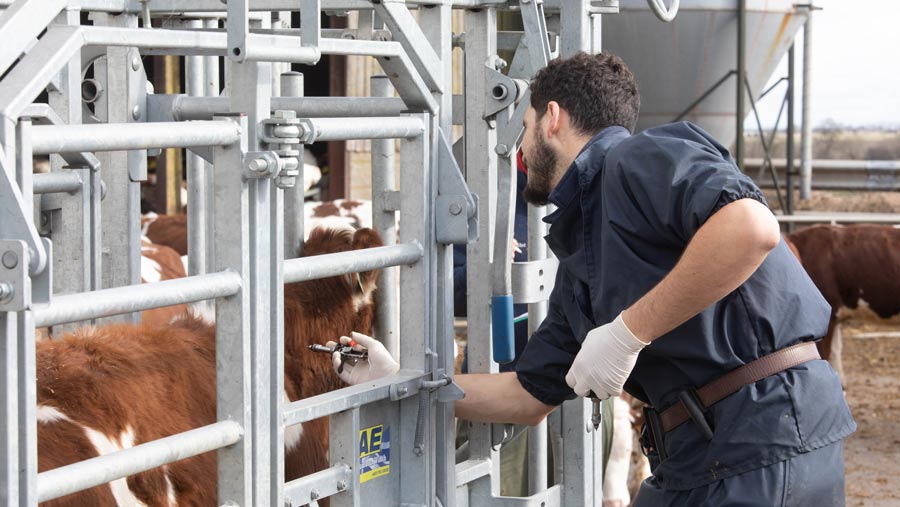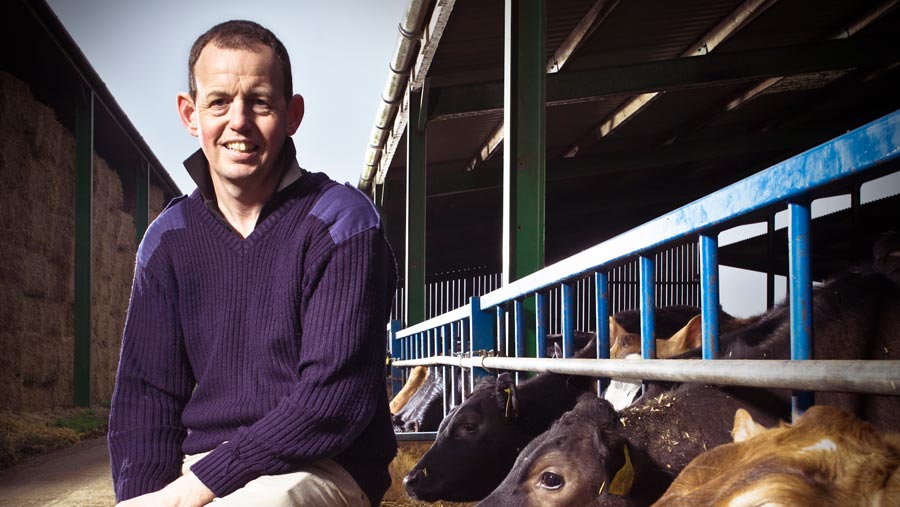Bovine TB rapid detection test gains funding for validation
 © Tim Scrivener
© Tim Scrivener A new rapid test that would enable livestock farmers to remove bovine TB-infected cows from their herds within six hours has secured funding for validation.
Suffolk-based agritech firm PBD Biotech has secured a £2.3m investment to take Actiphage through to validation by the World Organisation for Animal Health (OIE).
Full validation will enable international adoption of this diagnostic test for mycobacterial diseases, which include human tuberculosis, bovine TB and Johne’s Disease.
See also: Bovine TB-hit dairy farm trials rapid detection test
The funding has come from a consortium led by fund managers Mercia and the Foresight Group, which were both investing from the Midlands Engine Investment Fund, the University of Nottingham and the government’s Future Fund.
A number of dairy farmers and veterinary practices have also invested in Actiphage in order to fast-track its availability.
Actiphage detects mycobacteria in a blood or milk sample, giving a simple yes/no answer. It offers the potential to identify animals at an early stage of infection and remove them from the herd.
The Animal and Plant Health Agency (Apha) currently approves Actiphage in England and Wales as an unvalidated test for use only in a chronic bovine TB breakdown.
Parallel testing
However, OIE validation would enable Actiphage to be used in parallel with the existing tuberculin skin test and gamma (blood) interferon test.
Using Actiphage, a survey of 41 tuberculin skin test-positive UK cattle tested at slaughter found live M.bovis in the blood of all animals with visible lesions (13 out of 13), and in 93% (26 out of 28) of animals with no visible lesions (NVL), following post-mortem examination.
PBD Biotech says this study confirms that relative to the skin test, Actiphage has a sensitivity of 95% and a specificity of 100%. Further trials are required to fully validate the test.
Up to 50% of cattle carrying TB can be missed by the main skin test used in Great Britain, so potentially up to 50% of those infected with the disease could be left in the herd, which results in chronic infection.
Test milk
Unlike the skin test, which uses the animal’s immune response to indicate the level of infection, Actiphage detects the presence of live mycobacteria in a blood or milk sample, which PBD Biotech and is faster and more accurate.
Actiphage offers the potential for: rapid screening prior to movement; quality assurance in dairy products (which would be invaluable to artisan cheesemakers) and to differentiate infected from vaccinated animals (DIVA test), paving the way for the introduction of a vaccination programme.
In February, Actiphage was awarded the Innovation Award 2021 by the British Veterinary Association (BVA). Professor the Lord Trees, head judge for the BVA award, described it as “having the potential to be a game-changer in tackling bovine TB”.
Case study: David Christensen, dairy and beef farmer, Abingdon, Oxfordshire

© Holdsworth Associates PR
David Christensen used Actiphage to confirm whether his animals that were found to be inconclusive with the skin test had bovine TB, as he wanted to remove infected cows from the herd.
Mr Christensen manages 2,000 animals at Kingston Hill Farm, a family-owned farming company operating dairy and beef farming enterprises in in Abingdon, Oxfordshire.
“We’ve had animals that are not officially inconclusive but there’s been some bovine TB reaction. We’ve used Actiphage to test those animals, and then made a decision about the animals based on those results,” he said.
“Actiphage told us that those animals were carrying TB, so those animals were then removed from the herd.
“However, the problem at the moment is that if you use Actiphage to make the decision to cull, then you don’t get any compensation – so we lost the value of the cows.”
Mr Christensen is concerned about the failure of the industry to control and eradicate bovine TB. He said: “The current tests are unable to accurately identify those at an early stage of the disease, before they become infectious, so that they can be removed.
“The other main concern is the lack of a vaccine. I am proactive about herd health and vaccinate my cattle against a range of other diseases, so if there were an effective vaccine for bovine TB I would use it.”
The hope within the industry is that through validation by the World Organisation for Animal Health (OIE), it will be possible to use Actiphage in parallel with other tests, to increase knowledge about the disease.
“Once Actiphage is accredited by the OIE, I presume then that those cattle would be included in the compensation scheme – if a farmer is proactively seeking to reduce disease level in their herd, it is only fair and right that they be compensated for that,” said Mr Christensen.
